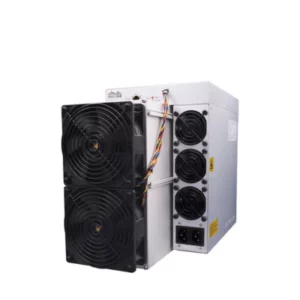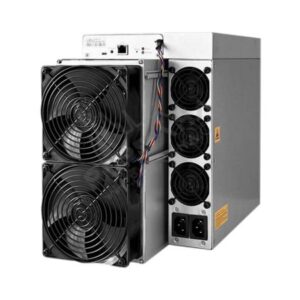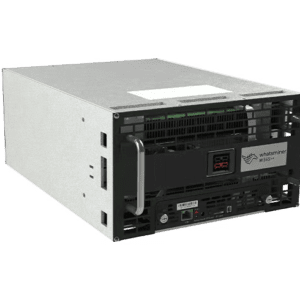Hosting Crypto Miners

Hosting Crypto Miners Service
GreenBlock Mining Capital stands as a dynamic force in the cryptocurrency landscape, serving as a crucial bridge for our valued clients to access cutting-edge hosting facilities. We achieve this through robust partnerships with renowned hosting providers on a global scale, establishing a network that empowers miners and investors alike to harness the potential of cryptocurrency mining with ease and efficiency.
Our hosting providers represent the pinnacle of expertise in the cryptocurrency sector, with a track record of honed skills and knowledge spanning numerous years. This extensive experience guarantees impeccable reliability and a competitive edge in the services they offer. While our primary focus is to cater to mid to large-scale clients seeking to scale their operations, we proudly extend our support to individual retail customers who wish to capitalize on our infrastructure. This inclusivity allows miners of all sizes to install their mining rigs within our facilities and leverage the cost-saving benefits derived from our economies of scale.
At GreenBlock Mining Capital, our commitment to our clients goes beyond mere facilitation. We are dedicated to consistently forging fresh partnerships, ensuring that our clients are presented with prime opportunities for their ventures. Our highly skilled technical team serves as your trusted partners, providing expert oversight of your mining operations and handling all interactions with our esteemed datacenter partners on your behalf. This comprehensive support system is underpinned by our unwavering commitment to transparency. We believe in empowering you, our clients, by providing you with full control over your mining activities, fostering trust and ensuring that you are always well-informed in your cryptocurrency mining endeavors.
What is crypto mining hosting?
Hosted mining, also referred to as custodial miners, is a method in which a third-party service provider hosts and manages mining equipment on behalf of a client. This arrangement streamlines the mining process and offers several advantages to cryptocurrency miners.
In this setup, clients typically purchase mining rigs directly from the hosting company. It’s important to note that the mining rig remains the complete property of the client, not the hosting company. The client pays a monthly hosting fee, which is determined by the power consumption of the mining rig. This fee generally encompasses a comprehensive package of services, including electricity, rack space, as well as various ancillary services crucial for ensuring smooth mining operations. These services often include security measures, responsive customer support, and continuous monitoring of the mining equipment.
To provide clients with assurance and maintain operational consistency, some hosting companies specify an expected uptime percentage within their contracts, typically around 95%. This stipulation helps safeguard clients against unexpected interruptions in operations, as any downtime means a loss in potential earnings of Bitcoin. Reputable hosting partners go a step further by assisting in coordinating repairs for the equipment, and many have on-site technicians available to expedite the process and minimize disruptions.
Hosting agreements typically have fixed terms, with the duration pre-determined in the contract. Since the rig remains the client’s property, they have the option to request physical delivery of the equipment if they choose to do so, but this may incur a penalty if initiated before the agreed-upon term concludes. This flexibility provides clients with options while ensuring that hosting companies can effectively manage their resources and operations.
In summary, hosted mining offers cryptocurrency miners a convenient and efficient way to engage in hosting activities while benefiting from professional services and infrastructure provided by third-party hosting companies. This arrangement is especially appealing to individuals and businesses seeking to enter the mining space without the complexities of managing equipment and facilities independently.

Is hosted Bitcoin mining profitable?
Bitcoin mining has the potential to be profitable, but it’s important to understand that success in this field depends on various factors, and there are no guarantees of high profits. Hosting can be a complex and competitive endeavor, and it may not be suitable for everyone. This article aims to provide you with an overview of Bitcoin mining, including its associated risks, potential profitability, and the steps required to get started. Armed with this information, you can make an informed decision about whether Bitcoin mining aligns with your goals and resources.
- Understanding Bitcoin Mining: Is the process by which new Bitcoins are created and transactions on the Bitcoin network are verified. Miners use specialized computer hardware to solve complex mathematical puzzles, known as proof-of-work, to add new blocks to the blockchain. In return for their efforts, miners are rewarded with newly minted Bitcoins and transaction fees.
- Investing in the Right Tools: Profitability in Bitcoin mining hinges on the efficiency and power of your equipment. High-quality hardware, such as ASIC (Application-Specific Integrated Circuit) miners, is essential for competitive mining. It’s important to calculate the costs of acquiring and operating equipment, including electricity costs, to assess potential profits accurately.
- Joining a Bitcoin Mining Pool: Solo mining, where you mine on your own, can be extremely challenging due to the increasing difficulty of Bitcoin mining. Many miners join mining pools, which are groups of miners who combine their computational power to increase the chances of earning rewards. Pool members share the rewards proportionally, making it a more consistent way to earn Bitcoin.
- Profitability and Risks: Profitability in Bitcoin is influenced by factors like the current Bitcoin price, difficulty, electricity costs, and hardware efficiency. It’s essential to consider these variables and use profitability calculators to estimate potential earnings. However, the cryptocurrency market is highly volatile, and profitability can change rapidly.
- Getting Started: To begin Bitcoin mining, you’ll need to:
- Acquire hardware: Invest in ASIC miners or other suitable equipment.
- Choose a pool: Join a reputable pool to increase your chances of earning rewards.
- Set up software: Install and configure software on your hardware.
- Monitor and maintain: Regularly check your operation, update software, and maintain hardware to ensure optimal performance.
- Conclusion: Bitcoin mining offers the potential for profit, but it comes with risks and challenges. It’s crucial to thoroughly research and understand the complexities, including equipment costs, electricity expenses, and the ever-changing cryptocurrency market. With the right tools, knowledge, and dedication, some individuals and organizations can find success in Bitcoin mining, while others may choose alternative ways to participate in the crypto ecosystem.
Is crypto mining Illegal?
In the realm of cryptocurrency, legal considerations play a crucial role in determining whether miners can operate without legal complications. While many countries generally have laws in place for electricity and data systems, specific regulations pertaining to Bitcoin and cryptocurrency mining are emerging to safeguard investors and establish industry standards. Below, we’ll explore the legality in several countries.
Is Bitcoin Mining Legal in the USA?
Is legal in almost all states, with the exception of New York. However, some organizations and authorities may impose certain restrictions. For instance, the U.S. Marine Corps prohibits service members from engaging in cryptocurrency mining using government-provided equipment. Most regulations in the USA and elsewhere are often driven by concerns related to energy consumption.
In the case of New York, a law passed in 2022 imposes a two-year ban on specific cryptocurrency mining operations that employ proof-of-work mechanisms. This type of mining, used by Bitcoin, requires significant energy and expensive equipment. The law also restricts some Bitcoin mining companies to using only renewable energy sources.
Is Bitcoin Mining Legal in Canada?
Canada, in general, does not have specific blockchain laws that ban cryptocurrency mining. However, the province of Manitoba has followed the example set by New York, imposing an 18-month ban on new cryptocurrency companies. The concern in this case is the impact of mining operations on local communities. Despite this, Canada remains an attractive destination for miners due to its low electricity costs.
Is Bitcoin Mining Legal in Australia?
Bitcoin mining and other cryptocurrencies are legal in Australia. Various methods, including cloud, ASIC, and GPU, are widely accepted. It’s important to note that cryptocurrencies are not considered legal tender in Australia, which means businesses are not required to accept them as payment, and there is no federal or provincial insurance for cryptocurrency funds.
Is Bitcoin Mining Legal in New Zealand?
Bitcoin mining and other cryptocurrencies are legal in New Zealand. However, profits generated from mining are subject to income tax. The Inland Revenue Department views cryptocurrency as a money-making activity. Fortunately, miners can often deduct expenses incurred during mining, including hardware, electricity, and internet costs, from their taxes.
Is Bitcoin Mining Legal in the UK (United Kingdom)?
Bitcoin mining is legal in the UK, as are other cryptocurrency activities. The UK lacks a formal regulatory system specifically tailored to virtual currency miners. Importantly, customs taxes are applied to imported equipment, and all mined cryptocurrencies are subject to income tax and social security.
It’s essential to understand that cryptocurrency regulations can evolve over time, so miners should stay informed about local laws and potential changes. Compliance with legal requirements is crucial to ensure a smooth and lawful operation.
Can you make your own crypto miner?

Building a cryptocurrency mining rig is indeed akin to assembling a customized computer, but with a specific focus on components that optimize mining performance. Here’s a detailed breakdown of the hardware and other essentials you’ll need to create a successful mining rig:
1. Mining Rig Frame:
- A mining rig frame is the enclosure that houses your components.
- Recommended to buy a stackable frame, costing under $100.
- Opt for a frame that can accommodate six to eight GPUs and provides space for auxiliary fans to ensure proper cooling.
2. GPU (Graphics Processing Unit):
- The GPU is the most crucial.
- Expensive GPUs don’t necessarily translate to higher profits; focus on achieving a high hash rate with minimal electricity consumption.
- Profitability formula: Profits = Hash Rate – Electricity Consumption.
3. Motherboard:
- The motherboard connects all components and should support the number of GPUs you plan to use.
- Ideally, select a motherboard that can handle between four to eight GPUs.
4. RAM (Random Access Memory):
- You’ll need sufficient RAM to store temporary data during mining operations.
- A RAM size between 4GB and 12GB is generally adequate.
- Ensure compatibility between your chosen RAM and the motherboard.
5. Storage:
- Invest in a hard drive or SSD with over 50GB storage capacity for permanent data storage.
- 1TB SSDs are available for under $100.
- Storage choice (HDD or SSD) has minimal impact on mining performance.
6. CPU (Central Processing Unit):
- The CPU’s role is secondary since the main work is performed by GPUs.
- An Intel Core i3, i5, i7, or a modern alternative CPU is sufficient for most mining rigs.
- Some miners may use CPUs exclusively, but this is less common for most cryptocurrencies.
7. Power Supply Unit (PSU):
- A stable and efficient PSU is crucial for reliable mining operations.
- A rig with three to six GPUs typically requires a minimum of 1,200 watts of power.
- PSU efficiency ratings include Plus, Bronze, Silver, Gold, and Platinum, with higher ratings indicating greater efficiency.
- Miners often opt for a PSU with Plus Platinum or Plus Gold rating for energy efficiency.
8. Other Requirements:
- PCIe Risers: These allow you to attach GPUs and accessories directly to the motherboard, providing flexibility in layout.
- Software: Use software like CGMiner, EasyMiner, or Kryptex to manage your operations.
- Operating System: Operating systems like Awesome Miner and RaveOS are designed to streamline rig management.
- Crypto Wallet: You’ll need a wallet to store the cryptocurrency you mine.
- Stable Internet Connection: Ensure a reliable internet connection to stay connected to the pool and monitor your rig remotely.
Assembling a rig requires careful consideration of these components to achieve optimal efficiency. Additionally, staying up-to-date with hardware and software developments in the cryptocurrency mining space is essential to maximize your profits.
-
Antminer X5$4,000
-
Antminer S21$3,860
-
Whatsminer M56S++$7,396



